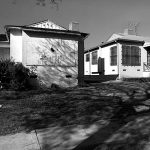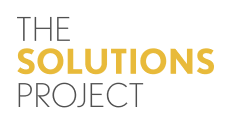
Dodger Stadium, site of SCOPE’s 20th anniversary celebration on March 13, 2014. To purchase tickets, please click here.
Creating a Level Playing Field for the Past 20 Years.
April 29, 1992. On this day, four Los Angeles police officers were acquitted of brutally beating Rodney King, leading to unprecedented violence that boiled over as thousands of the city’s residents took to the streets in seething protest. A lesser known fact: Also on April 29, 1992, the Los Angeles Dodgers, who played the Philadelphia Phillies moments after the first fires were ignited, lost their second game that year, and began their spiral downward into the franchise’s worst season in 84 years.
Some memories are more potent than others, and the outcome of a baseball game during one of the most tragic events in the nation’s history hardly seems significant. But for fans in the stadium who were listening to accounts of the city’s shutdown, and players who heard the verdicts while prepping in the locker room, maybe there was no better place to be during such a divisive moment.
For longtime sportswriter Jon Weisman, the game itself wasn’t all that memorable, he recalls on his blog DodgerThoughts. But he still found solace in watching. Former outfielder Darryl Strawberry recalled his complex mix of emotions: He lamented the verdicts, and what they represented in the struggle for racial justice, while fearing for his brother, a city police officer who was attacked on that day.
And yet, playing baseball was probably the most normal thing he, or anyone, could do. After all in that moment, and the many to come afterward, the team would be playing for more than just a winning game—they’d be playing to help the city recover and move on.
That’s because sports has the capacity to launch the healing process—to bring comfort to folks in a moment of loss, and inspire hope for the future by focusing on a different, possibly more tenable story about rebuilding and renewal, when the larger one seems like nothing more than fantasy.
Twenty years ago, that ethic also gave rise to our organization, Strategic Concepts in Organizing and Policy Education (SCOPE), when a group of longtime social justice leaders decided to transform the narrative around LA’s urban decay into one of social change and empowerment by rethinking the very concept of community organizing from the ground up. SCOPE—which began as Action for Grassroots Empowerment and Neighborhood Development Alternatives (AGENDA)—built a community of residents of South LA who chose not to play ball anymore until everyone had a turn at bat. And with that in mind, they set out to find solutions to the root problems of civic unrest by asking residents for their ideas, and creating forums where they could step up to the plate.
In the past two decades, we have converted stories about unemployment into model green job creation programs such as the Green Retrofit Campaign; partnered with major studios to give our young people a chance to obtain entertainment-industry positions; and pioneered some of the largest and most successful voter engagement drives. We have also developed a unique approach to researching best practices for activists, organizers, and policymakers that have been implemented by likeminded organizations across the country, and helped build a cadre of politically-conscious grassroots leaders. In fact, in the past two decades, we’ve cultivated a base of 40,000 who support progressive government, good jobs, and sustainable communities.
We will honor some of our own Hall of Famers: Anthony Thigpenn, founder of AGENDA and SCOPE, and president of California Calls, who has been organizing grassroots groups into powerful coalitions since the 1970s; Paula and Barry Litt—philanthropists, advocates for victims of civil rights abuses, and longtime anti-war activists; and Gerald Hudson, International Executive Vice President of SEIU, known for his dedication to environmental justice issues, particularly urban sprawl. Like the Dodgers, who went on to make it to the postseason in almost every year since 1992, our honorees have dedicated their lives to winning the fight for social justice, despite the decades of neglect that lead to the city’s frustration and disillusionment.
In 2014, we plan to raise our commitment to creating a level playing field for everyone. SCOPE’s campaign to increase city revenue targets the corporate agenda through taxes that will tip the debate toward solutions that will redistribute wealth and bring more equity to the tax system. We will also aggressively pursue a war on poverty at a time when we need it most: the number of Americans living below the poverty level is at its highest in half a decade, despite small gains in the economy in the past five years. We’re excited to wind up for the pitch! But your support is crucial if we’re going to hit it out of the park this year, and in the years to come.
Please attend! Click here to buy tickets, buy a tribute journal ad, or make a donation to our 20th anniversary celebration. You can also download the sponsorship form here or contact our office at (323) 789-7920.












